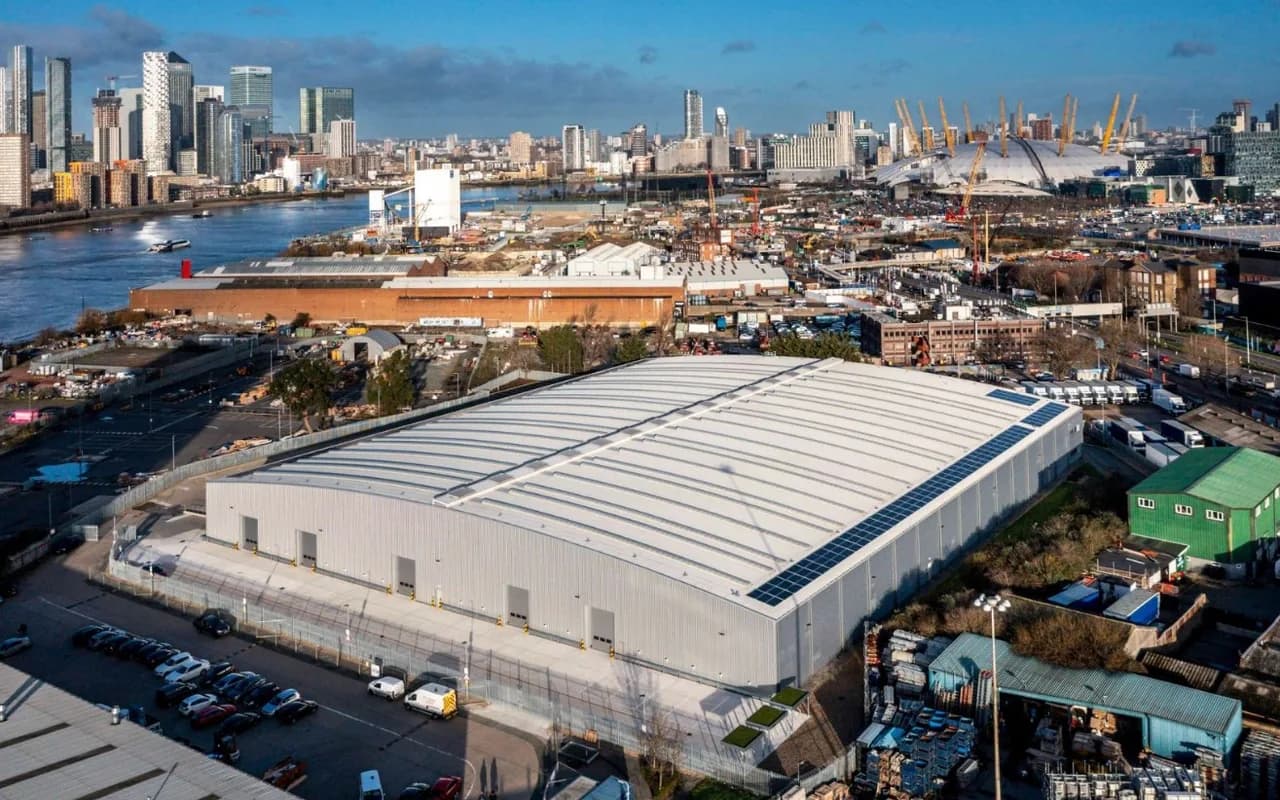
The election was certainly one to remember. The Tories achieved the fewest number of seats in their recent history and Labour’s vote share was the lowest ever to have secured a majority. Backed by just a third of the electorate, but labelled a landslide nonetheless.
We’ve glanced inside Labour’s ‘Change’ manifesto to see what this all means for the real estate sector and the sustainability agenda at large. Starmer has vowed to change Britain, but are his promises achievable?
Renewable Energy
The manifesto pledged the introduction of an Energy Independence Act, aiming to achieve a zero carbon electricity system by 2030. This week, the King’s Speech referred to the ‘Global Climate Challenge’ and our government’s desire to achieve this energy independence.

Source: DESNZ, The Labour Manifesto, DTRE Research
During Q1 2024, renewable energy accounted for over 50% of total generation, contributing more than gas for the second consecutive quarter. However, to reach Labour’s ambitious target, there is a long way to go. Installed renewable energy capacity was 49 GW in Q1 2024 and Labour are looking to grow this to 150 GW by 2030.

Source: DESNZ, The Labour Manifesto, DTRE Research
To achieve these targets, renewable capacity in the UK will need to grow by 21% annually to 2030 – far higher than in recent years. If Labour do accomplish this, it will be a remarkable achievement: the fastest growing grid decarbonisation in Europe.
UK renewable growth in the past six years and projected for the next six years:

Source: DESNZ, The Labour Manifesto, DTRE Research
The UK has a huge solar opportunity yet is falling behind neighbours like the Netherlands and Germany where financial benefits for installing PV is encouraging major growth. Unchecked, this gap is likely to grow as the European Energy Performance of Buildings Directive (EPBD) continues to boost solar capacity across EU Member States.
The UK has the second largest offshore wind capacity in the world, representing 40% of the European total, with offshore wind output of 49TWh saving the equivalent of 18.5m tonnes of CO2 emissions last year alone.
The new government has promised to improve the planning process for infrastructure projects to progress pipeline projects. Greener energy means greener real estate, and businesses in the sector would welcome a helping hand in achieving their own net zero ambitions.
The Net Zero Horizon
Ed Miliband has returned to Cabinet as energy secretary having held a similar role from 2008 - 2010. Sources claim he ordered an immediate ban on new North Sea drilling licences but, rest assured, these are merely rumours. The government will only halt new licences for new fields.
Restricting fossil fuel growth in the North Sea is a welcome policy from a sustainability perspective but, given the UK’s low coal supplies, this may leave us vulnerable in cold winters. To accompany this policy, the government has also agreed to extend the Energy Profits Levy which will help with much needed energy rebalancing.

Source: DESNZ, DTRE Research
The UK is the first major economy to more than half their output: reducing CO2 by 53% between 1990 and 2023. At a reduction of 428 MtCO2e, it’s more than the emissions reductions of the US, Canada, France, Italy and Japan combined.
However, the UK is only halfway to achieving its 2050 net-zero target. Just yesterday, the UK’s Climate Change Committee warned that the UK’s targets were at risk, urging the new government to rollback Conservative green energy reversals “as a matter of urgency”. With policy pending, what will future forecasts really look like?
The Green Finance Capital of the World
The manifesto also refers to the UK becoming ‘the green finance capital of the world’, naming institutional investors and encouraging FTSE 100 businesses to implement net zero plans. We’ve already seen the emergence of Impact Funds in the UK real estate market, aiming to make beneficial social or environmental change alongside returns.
We expect this ESG-related pool of capital to grow significantly and the market to become increasingly sustainable investment intelligent. Costed decarbonisation strategies are already creeping into transactions, in part to safeguard assets from evolving EU legislation. We expect the UK regulation horizon to align with European (CSRD) or international regulations (ISSB).
Rewiring Britain
For the logistics sector, the National Grid is the single biggest challenge. Labour dedicated a section of its manifesto to address this and the King’s Speech reinforced its importance by referring to the creation of Great British Energy (GBE): a new, publicly-owned clean energy generation company that will co-invest alongside private capital.
GBE will partner with energy companies, local authorities and cooperatives to develop up to 8GWs of cheaper, cleaner power by 2030, and upgrade infrastructure. While we commend Labour for being the only party brave enough to mention the grid, their methodology so far is unclear.
What’s Missing?
It’s surprising that we have no further clarity on EPC deadlines. Labour has reversed the decision to waiver MEES for privately rented residential properties but seem to have forgotten commercial assets. For commercial property, this makes long-term planning and budgeting challenging and could lead to a retrofit rush when (or if) MEES deadlines become legislative.
Labour has committed to restoring the 2030 ICE phase-out for cars, increasing the number of charging points, standardising battery condition information and allocating £1.5bn to new gigafactories. However, it feels like they’ve missed an opportunity in not mentioning logistics fleets, and by focusing their attention on cars rather than vans or HGVs.
Overall, we are excited to see what the future brings. The Labour government’s sustainability targets are easily the most ambitious in Europe and would certainly bring about ‘Change’. Only time will tell whether the new government’s ambitions will come to fruition.



